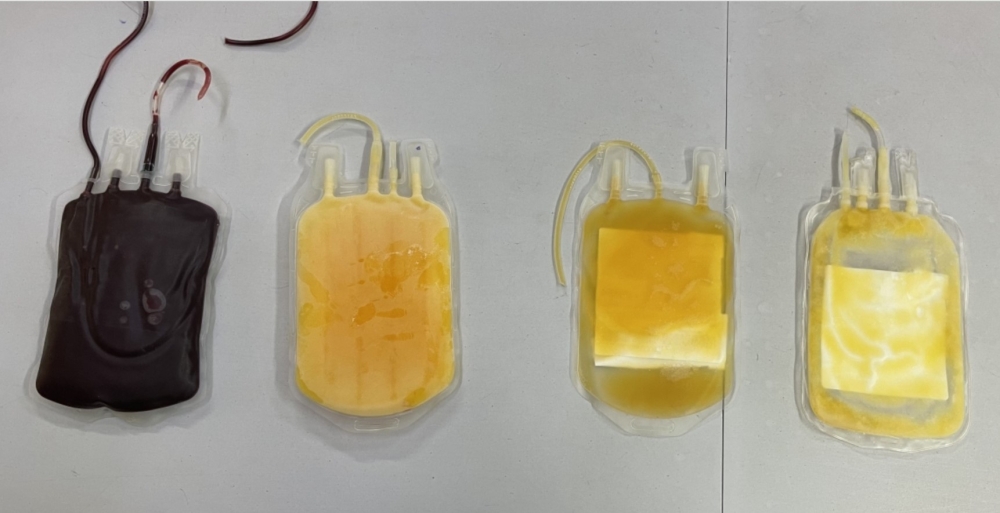

Rwanda Biomedical Centre (RBC) is now focusing on acquiring new technologies and establishing the necessary infrastructure that meet international requirements as the country readies to export plasma, an official has said.
Announced early last month, the initiative is part of the country’s efforts to address the costs it incurs in the production and disposal of excess amounts of plasma. One of the significant benefits of the move is that by exporting plasma, Rwanda can negotiate for more affordable prices of medicinal products from international producers.
ALSO READ: Rwanda to export plasma in strategic medical move
As the government continues preparations, Dr. Thomas Muyombo, the Blood Transfusion Division Manager at RBC, told The New Times that their current focus is on improving the division's setup and infrastructure. He noted that RBC has improved its testing capacity for serology and blood grouping with modern equipment and is now looking forward to acquiring Nucleic Acid Amplification Testing (NAT) technology.
"We are awaiting to acquire the NAT testing platform and RBC is negotiating with a manufacturer who will soon provide it,” Dr. Muyombo said.
NAT is a highly-sensitive method of testing blood that is used to detect Hepatitis C virus (HCV), Human Immunodeficiency Virus (HIV-1) and West Nile Virus (WNV) in blood.
Most traditional screening tests require the presence of antibodies to trigger a positive test reaction.
Dr. Muyombo said RBC managed to upgrade its storage equipment to meet the required capacity and standards, by acquiring high standard walk-in freezers for bulk storage of plasma and Chock and Rapid Plasma Freezers for the processing of Fresh Frozen Plasma for better preservation of coagulation factors in plasma.
ALSO READ: Govt rolls out high-tech blood donation technology
"We have built an electronic Blood Bank Management system (BBIMS), an in-house built system owned by RBC, that fits the recommendation for easy tracking of our products,” he noted.
As soon as the NAT testing platform is in place, he said, RBC will move to the next phase of directly engaging and negotiating with all interested importers to identify a suitable one to partner with.
According to a Ministerial Order on modalities for the use of the human body, organs, tissues, cells and products of the human body, which was published in the Official Gazette, on July 12, products of the human body that may be sold are plasma extracted from the blood. It provides that the price of plasma is at least $50 per litre.
The order defines plasma as a light-yellow liquid part of blood that remains after red blood cells, white blood cells, platelets and other cellular components are removed from blood.
According to Cleveland Clinic, a major health facility in the US, plasma is necessary to help your body recover from injury, distribute nutrients, remove waste and prevent infection, while moving throughout your circulatory system.
US is the largest exporter
Reports indicate that the US is the largest exporter of plasma, supplying about 70% of the world's plasma needs. In 2023 alone, it is reported, the US pulled in a staggering $37 billion from blood product exports.
According to the World Health Organisation, plasma-derived medicinal products (PDMPs) play a major role in health care, including treatment for haemophilia, immune diseases, certain infections, and a variety of other serious conditions.
A number of PDMPs are included in the WHO Model List of Essential Medicines, emphasizing their importance in the health system and the need to facilitate access to these products in all countries.
However, according to WHO, unequal access globally to PDMPs, especially scarcity in many lowand middle-income countries, leaves many patients with severe congenital and acquired disorders without adequate treatment. A major factor limiting the global availability of PDMPs is an inadequate supply of plasma meeting internationally recognized standards for fractionation. Plasma fractionation is the downstream processing of plasma that has been harvested by donors. It breaks plasma into individual proteins, or plasma fractions.


